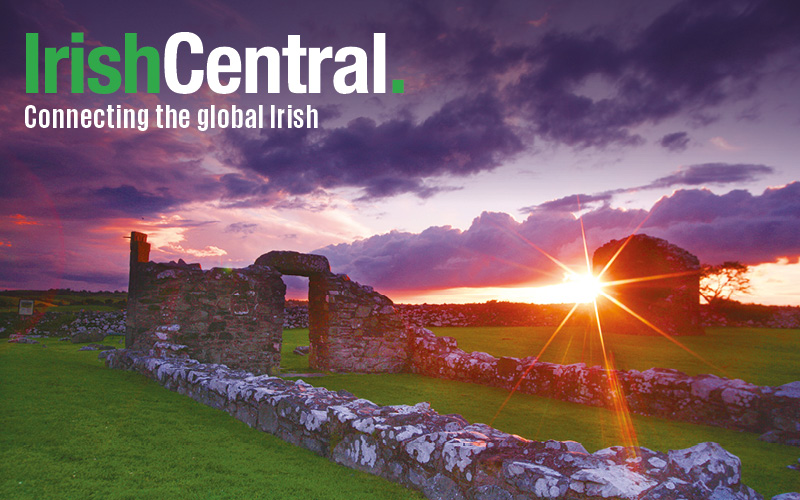For some men the thought of becoming a pirate is still completely irresistible. After all, haven’t adventurous young Irish men been running away to the sea for centuries?
But for Dubliner Steve Conway, 45, it wasn’t the thought of a dramatic eye patch or a wooden leg that was the main attraction. It was the siren call of rock and roll.
In his evocatively written new book “Shiprocked”, Conway covers his four happy years as DJ for Radio Caroline, the infamous “Pirate Radio” station that operated under several guises from the 1960s through the late 1980s just outside British waters.
By 1987 when he stepped aboard Radio Caroline was already a living legend, because it played the music that official stations overlooked or outright banned.
Hosted on a leaky ship called the Ross Revenge, the floating rock station boasted an impressive antenna system atop a 300-foot high mast that at the time was the tallest on any ship in the world. There was a very good reason to keep the mast so high and the ship so far from land.
Because of chokingly tight restrictions on British radio, “Pirate Radio” ships transmitted their non-commercial music from international waters to the grateful music lovers that were their most passionate fans.
Radio Caroline didn’t just play rock and roll, it was at the forefront of it, introducing the public to emerging new acts like REM and U2. These pirate deejays were men and women on a mission, and that mission was to save rock and roll from the dross that was always threatening to engulf it.
Conway is in no doubt about why he signed up to come aboard.
“It was absolutely the sense of freedom,” he tells IrishCentral’s sister publication the Irish Voice. “We were this small band of people exiled out in international waters. We were cut off from the people on land and we’d endure weeks and months out there to bring great music to the people.
“To me it seemed like a real rebel lifestyle. I had moved to London when I was 19 because Ireland was in the middle of a terrible recession and there was no work, and I just fell in love with the idea of “Pirate Radio”.”
On board the Ross Revenge, Conway started out as a journalist, reading the news. Eventually he became a DJ, and shortly after that he was promoted to program controller.
It was the kind of rapid rise from rookie to captain that could only happen in fit-up operations of this kind. “If you enjoyed the life you could move up the ranks very quickly,” he says.
Growing up in the village of Churchtown, Co. Dublin, Conway had heard about Radio Caroline because it had been founded by an Irishman, Ronan O’Rahilly, who’s grandfather Michael Joseph -- a man known to all in Dublin as The O’Rahilly -- was one of the most important rebels in the 1916 Rising (there’s a monument to him in the center of Dublin).
Ronan O’Rahilly had moved to swinging London in the 1960s and became the manager of jazz singer Georgie Fame. But the big record companies of the era couldn’t see Fame’s star quality so O’Rahilly became proactive before the term had even been coined -- he started his own radio station to promote his own artist. Then he encountered his next problem, the big radio stations refused to play Fame’s records.
“So O’Rahilly got a ship, put it three and a half miles out with a massive transmitter on board and beamed his music into the U.K. From day one he was very successful. In less than a year there were half a dozen of these “Pirate Radio” competitors at sea,” Conway says.
For the British Broadcasting Company (BBC) the official -- and at the time the only -- radio station, agreements with musician unions and performing rights groups meant that they were only allowed to play a very limited amount of recorded music.
So when Radio Caroline came along it was like the advent of the iPod and Internet file sharing, because suddenly “Pirate Radio” stations were breaking long established laws of broadcasting and performance rights, and government officials had no idea how to deal with them.
“The authorities really didn’t like it at all. When Caroline started it was the first place where you could hear uninterrupted pop music on the radio,” says Conway.
“So in 1967 they brought in legislation to make it illegal for a British citizen to work offshore on a radio station or for a British company to advertise on one. That meant all the other pirates shut down but Caroline continued, staying out at sea with the help of international advertisers.”
It’s undeniable that Caroline played a key role in promoting pop, but the BBC responded to the challenge by launching Radio 1, an all-pop music channel. In the 1980s legislation ensured that official radio stations were only allowed to play pop music for 12 hours in any 24-hour period.
They had to fill the rest of the programming with competitions and phone-in’s, so that made it easy for Caroline to get a great audience. They cleaned up audience wise by offering listeners what they wanted to hear.
“I have seen the new film “Pirate Radio” and I have to say that about 75 percent of what happens in the film has either happened to me or I’ve seen it happen. It’s actually very true to life in many ways,” Conway says.
“It really captures how determined the British government was to shut the pirates down. They thought that 24 hour a day pop music polluted the morals of young people and they wanted to shut them down. They said we were cheapening Britain.”
In winter when it was cold and rough on the high seas Radio Caroline could never find enough people to sign up to come onboard. Whoever did volunteer could find themselves doing everything from hosting a show to cooking dinner to helping fix the ship’s engine. No two days were ever alike.
Then in 1987, when a once in a generation hurricane hit the southern English coastline, Conway was on board.
“That storm felled 25 million trees in one night in the U.K., and 18 people lost their lives that night. All of the other commercial ships went to port and sheltered but we were 18 miles out and tossed by waves as tall as houses. We kept on broadcasting through the storm.”
In November 1991 the pirate ship wasn’t so lucky. Another hurricane force storm caused the ship to break anchor and drift onto Goodwin Sands, a notorious ships graveyard in the English Channel, so Conway ended his adventure on Caroline in the most hair rising way.
“We ran aground on a side bank and almost capsized. First we were tilting at 10 degrees, and then eventually we were at 45 degrees. We thought we were going to die and we actually hugged and said goodbye to each other,” Conway recalls.
“We didn’t think the coastguard helicopter would turn up in the nick of time, but it did. It was a morning I’ll never forget.”
“Shiprocked” is available from Dufour Editions.




Comments